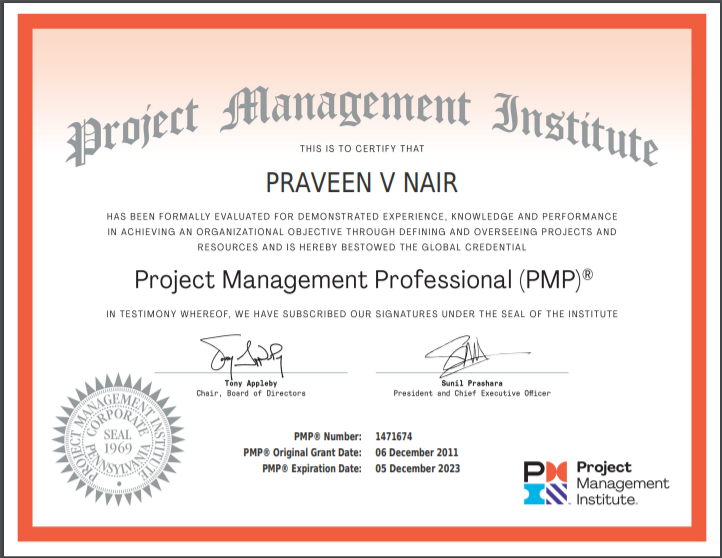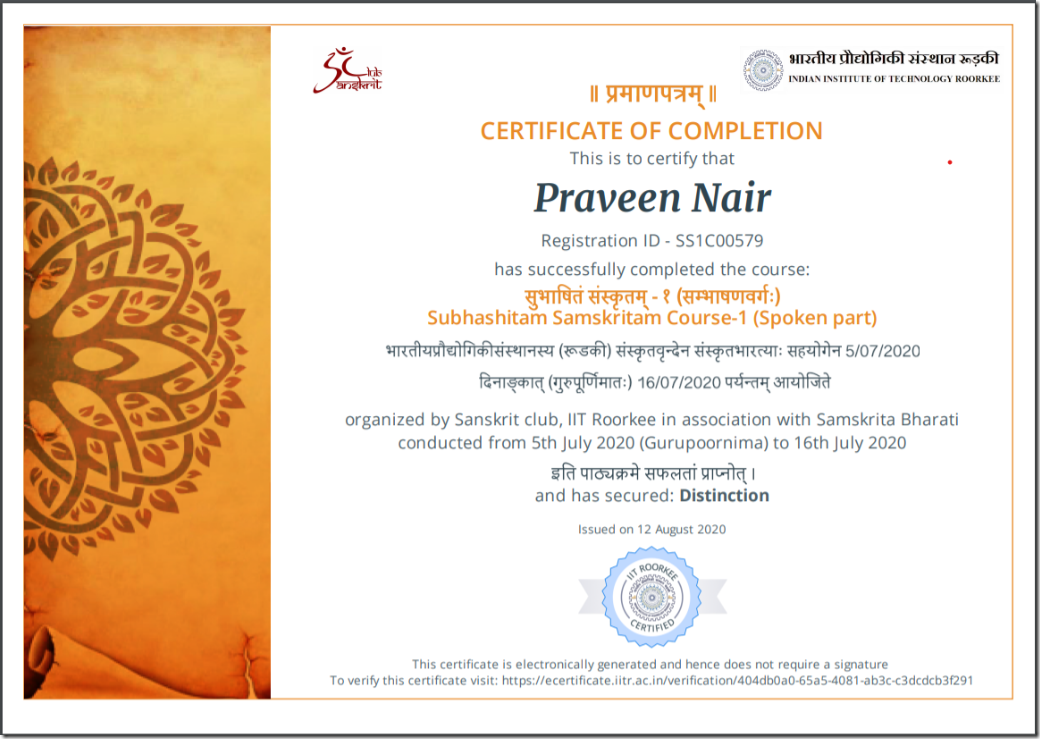Strong Password Generator in C#
This code snippets will let you auto-generate strong passwords. Look for the password rules in the inline comments in code
002 using System.Collections.Generic;
003 using System.Linq;
004 using System.Security.Cryptography.X509Certificates;
005 using System.Text;
006 using System.Threading.Tasks;
007
008 namespace PwdGen
009 {
010 class Program
011 {
012 static void Main(string[] args)
013 {
014 //Console.WriteLine(GeneratePassword2(8, 15));
015 //Console.WriteLine(GeneratePassword(8, 15));
016 Console.ReadKey();
017 }
018
019 static string GeneratePassword2(int MinLength, int MaxLength)
020 {
021
022 string ValidChars = "0123456789abcdefghijklmnopqrstuvwxyzABCDEFGHIJKLMNOPQRSTUVWXYZ:;<>|=.,_-~!?&%@#$£€°^*§()+[] ";
023 string SpecialChars = "!@#$%^&*()";
024
025 string pwd = string.Empty;
026
027 do
028 {
029 Random rnd = new Random(Guid.NewGuid().GetHashCode());
030 pwd = string.Join(string.Empty, Enumerable.Repeat(ValidChars, rnd.Next(MinLength, MaxLength + 1)).Select(s => s[rnd.Next(s.Length)]).ToArray());
031 Console.WriteLine(pwd);
032 } while (
033
034 Regex.Match(pwd, "[a-zA-Z]{3,}").Success || // Not more than 3 chars in sequence
035 Regex.Match(pwd, @"(\w)\1{2,}").Success || //Same number should not repeat more than 2 times
036 Regex.Match(pwd, "[1-9]{3,}").Success || // Not more than 3 numbers in sequence
037 !Regex.Match(pwd, "[A-Z]").Success || // At least one upper case char
038 !Regex.Match(pwd, "[a-z]").Success || // At least one lower case char
039 !Regex.Match(pwd, "[1-9]").Success || // At least one number
040 (pwd.ToArray().Where(l => SpecialChars.ToArray().Any(l2 => l2 == l)).Count() == 0) // At least one pre defined special char
041 );
042
043 return pwd;
044 }
045
046 static string GeneratePassword(int MinLength, int MaxLength)
047 {
048 string ValidChars = "0123456789abcdefghijklmnopqrstuvwxyzABCDEFGHIJKLMNOPQRSTUVWXYZ:;<>|=.,_-~!?&%@#$£€°^*§()+[] ";
049 string SpecialChars = "!@#$%^&*()";
050
051 string pwd = string.Empty;
052
053 Random rnd = new Random(Guid.NewGuid().GetHashCode());
054
055 bool NumExist = false;
056 bool IsUpper = false;
057 bool IsLower = false;
058 bool IsSplChr = false;
059 bool NoRepeat = true;
060 bool NoSeq = true;
061
062 while ((!NumExist || !IsUpper || !IsLower || !IsSplChr) && (NoRepeat || NoSeq) )
063 {
064 NumExist = false;
065 IsUpper = false;
066 IsLower = false;
067 IsSplChr = false;
068 NoRepeat = true;
069 NoSeq = true;
070
071 pwd = string.Join(string.Empty, Enumerable.Repeat(ValidChars, rnd.Next(MinLength, MaxLength + 1)).Select(s => s[rnd.Next(s.Length)]).ToArray());
072 for (int i = 0; i < pwd.Length; i++)
073 {
074 // Contains at least 1 lower case letter and 1 upper case letter (all UTF-8), at least 1 number
075
076 if (!NumExist)
077 {
078 NumExist = (char.IsDigit(pwd[i]) && true);
079 }
080 if (!IsUpper)
081 {
082 IsUpper = (char.IsUpper(pwd[i]) && true);
083 }
084 if (!IsLower)
085 {
086 IsLower = (char.IsLower(pwd[i]) && true);
087 }
088
089 // A predefined set of special chars must be present
090 if (!IsSplChr)
091 {
092 IsSplChr = (SpecialChars.IndexOf(pwd[i]) >= 0);
093 }
094
095
096 // Not more than 2 identical characters in a row (e.g., 111 not allowed)
097 if (i < pwd.Length - 2 && NoRepeat)
098 {
099 NoRepeat = !((pwd[i] == pwd[i + 1]) && (pwd[i] == pwd[i + 2]));
100 }
101
102 // Not any sequence of the English alphabet / numbers (above 3 letters)
103 if (i < pwd.Length - 2 && NoSeq)
104 {
105 NoSeq = !((pwd[i + 2] - pwd[i + 1]) == (pwd[i + 1] - pwd[i]));
106 }
107 Console.WriteLine(!NumExist +" "+ !IsUpper + " " + !IsLower + " " + !IsSplChr + " " + NoRepeat +NoSeq);
108 }
109
110 }
111
112 return pwd;
113
114 }
115 }
116 }
117
PMP certification renewed!
Upload/Download file to/fro MongoDB in Java
// This code is just for my reference
public static void main(String[] args) {
Logger mongoLogger = Logger.getLogger( "org.mongodb.driver" );
mongoLogger.setLevel(Level.SEVERE);
MongoClient mongoClient = MongoClients.create();
MongoDatabase database = mongoClient.getDatabase("testdb");
GridFSBucket gridFSFilesBucket = GridFSBuckets.create(database);
ObjectId fileId = new ObjectId();
try {
InputStream streamToUploadFrom = new FileInputStream(new File("d:\\200mb.mkv"));
// GridFSUploadOptions options = new GridFSUploadOptions()
// .chunkSizeBytes(1000)
// .metadata(new Document("type", "presentation"));
fileId = gridFSFilesBucket.uploadFromStream("myfile", streamToUploadFrom);
System.out.println("ObjectID" + fileId);
} catch(FileNotFoundException ex) {
System.out.println("Error" + ex.getMessage());
}
try {
FileOutputStream streamToDownloadTo = new FileOutputStream("d:/out.mkv");
gridFSFilesBucket.downloadToStream(fileId , streamToDownloadTo);
streamToDownloadTo.close();
System.out.println("Finished!");
} catch (IOException e) {
// handle exception
}
}
Got certified in Spoken Sanskrit Course-1
Bookmark: Raise event from a WPF User control
This blog is just for sample code keeping.
// UserControl1.xaml
<UserControl x:Class=”WpfApp1.UserControl1″
xmlns=”http://schemas.microsoft.com/winfx/2006/xaml/presentation”
xmlns:x=”http://schemas.microsoft.com/winfx/2006/xaml”
xmlns:mc=”http://schemas.openxmlformats.org/markup-compatibility/2006″
xmlns:d=”http://schemas.microsoft.com/expression/blend/2008″
xmlns:local=”clr-namespace:WpfApp1″
mc:Ignorable=”d” Background=”Red” Height=”186.646″ Width=”411.693″>
<Grid>
<Button Content=”Button” HorizontalAlignment=”Left” Margin=”80,72,0,0″ VerticalAlignment=”Top” Width=”75″ Click=”Button_Click”/>
</Grid>
</UserControl>
// UserControl1.xaml.cs
namespace WpfApp1
{
/// <summary>
/// Interaction logic for UserControl1.xaml
/// </summary>
public partial class UserControl1 : UserControl
{
public event EventHandler MyButtonClick;
public UserControl1()
{
InitializeComponent();
}
private void Button_Click(object sender, RoutedEventArgs e)
{
this.MyButtonClick(this, new EventArgs());
}
}
}
// UserControl2.xaml
<UserControl x:Class=”WpfApp1.UserControl2″
xmlns=”http://schemas.microsoft.com/winfx/2006/xaml/presentation”
xmlns:x=”http://schemas.microsoft.com/winfx/2006/xaml”
xmlns:mc=”http://schemas.openxmlformats.org/markup-compatibility/2006″
xmlns:d=”http://schemas.microsoft.com/expression/blend/2008″
xmlns:local=”clr-namespace:WpfApp1″
mc:Ignorable=”d”
d:DesignHeight=”450″ d:DesignWidth=”800″ Background=”Green”>
<Grid>
</Grid>
</UserControl>
// MainWindow.xaml
<Window x:Class=”WpfApp1.MainWindow”
xmlns=”http://schemas.microsoft.com/winfx/2006/xaml/presentation”
xmlns:x=”http://schemas.microsoft.com/winfx/2006/xaml”
xmlns:d=”http://schemas.microsoft.com/expression/blend/2008″
xmlns:mc=”http://schemas.openxmlformats.org/markup-compatibility/2006″
xmlns:local=”clr-namespace:WpfApp1″
mc:Ignorable=”d”
Title=”MainWindow” Height=”450″ Width=”800″>
<Grid x:Name=”MyGrid”>
<local:UserControl1 x:Name=”userControl1″ HorizontalAlignment=”Left” Height=”100″ Margin=”99,62,0,0″ VerticalAlignment=”Top” Width=”242″ MyButtonClick=”UserControl1_MyButtonClick” />
</Grid>
</Window>
// MainWindow.xaml.cs
namespace WpfApp1
{
/// <summary>
/// Interaction logic for MainWindow.xaml
/// </summary>
public partial class MainWindow : Window
{
private void UserControl1_MyButtonClick(object sender, EventArgs e)
{
}
}
}
Delivered a session on Virtual Classrooms – best practices to School Teachers
I got an opportunity to present a session on etiquette and tips & tricks in the 5-day online workshop organized by IT Milan Seva Foundation and & NTU Kerala. About 100 teachers from different schools across Kerala attended the event. The sessions were handled by experts in technology field and mine was on day-4. The program name was “പഞ്ചദിന ശാക്തീകരണ ശില്പശാല“, which formally concluded today. This stands here as my first ever technology session in Malayalam and, I am crediting this session also to my giving-back-to-community personal goal.
Topics covered:
– Etiquettes
– Best Practices & tricks
– Google Calendar
– Google Forms
– Chrome extensions
Video recording of the same can be watched here.
Python Programming series in Malayalam–Part 3 | How computers think
I am Automation Anywhere Business Analyst Certified now!
Automation Anywhere is a developer of robotic process automation software, which employs software bots to complete processes.
Verify my credential here.
Part-2 of Python Learning (Malayalam) Series has been published

You can Read the article here:
– പ്രോഗ്രാമിംഗ് പഠിക്കാൻ പഠിക്കാം – പൈത്തൺ പ്രോഗ്രാമിംഗ് ഭാഗം 2 – https://www.janmabhumi.in/read/python-programming-part-2/
– YouTube Video of the same: https://www.youtube.com/watch?v=rRZA2rCXzEs
All previous Parts – https://www.janmabhumi.in/admin-news-listing/?username=b19GgNpk1nCEhD9APPZ9Ch2RL0fgfM
May subscribe to playlist for updates on future parts – https://www.youtube.com/channel/UC3s4kM_Ov55FF02I5nQZB4g




